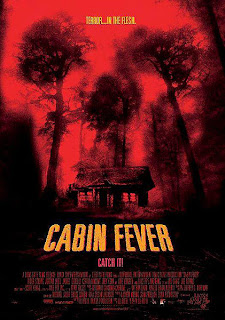"Wolf" just simmers but remains unusually empathetic
“Species dysphoria” is a real thing. Something as strangely fascinating as this subjective belief lends itself to an intriguing study of human nature and identity. What writer-director Nathalie Biancheri (2019’s “Nocturnal”) comes up with in “Wolf” is wholly original, constantly walking a tightrope that could have precariously fallen into silliness or camp but never does. For a while, there’s intrigue in the discovery, until the film remains the cinematic equivalent of a pot of water that just continues to simmer. Although it does peter out and fall somewhat short of its full potential in the end, “Wolf” is still unusual, empathetic, and persuasively acted.
Jacob (George MacKay) believes he is a wolf. He prowls the woods on all fours like a wolf, and he howls like a wolf, but Jacob is very much a man. With his parents concerned, they send him to the True You clinic, where many other young people like himself see themselves spiritually as animals (a duck, a squirrel, a horse, you name it). Jacob and the others are all under the care of Dr. Angeli (Eileen Walsh) and the less nurturing Dr. “The Zookeeper” Mann (Paddy Considine), who make it their job to reconnect their patients with their humanity. Once Jacob meets Wildcat (an affecting Lily-Rose Depp), a deeply damaged young woman who has been at True You for so long that she’s received certain benefits, the two begin to trust each other and become more defiant to access their spirit animals. Could Dr. Mann's extremely cruel methods actually "cure" his patients, or is he actually the animalistic and dangerous one?
There is a darkly humored absurdity to what is otherwise clinical in tone, not too dissimilar from Yorgos Lanthimos’ “The Lobster” where Colin Farrell’s character was obligated to find a romantic partner or be turned into an animal of his choice. Like that film, too, there is a certain sweetness to be felt, and here it’s the kinship between Jacob and Wildcat. Even as an obvious metaphor for gay or transgender conversion therapy, “Wolf” is still pretty daring. It’s not didactic, and one could even make a case that this plays like a more low-key “X-Men” movie in arthouse-horror drama clothing. While Paddy Considine turns Dr. Mann into a chilling and intimidating force with staunch belief in his sadistic treatments, the character never quite reaches more than a single dimension. Without question, he is the villain, while the grounded yet underwritten Dr. Angeli is more so the voice of reason.
How well the viewer responds to “Wolf” is a testament to the wild, full-bodied commitment of its actors. Sniffing, slinking around, and contorting their bodies, George MacKay and Lily-Rose Depp both trained with movement coach and stunt/motion-capture performer Terry Notary (who has a role here as “Lion Man” but has played everything from Kong in “Kong: Skull Island” to an ape in the “Planet of the Apes” movies). Watching their physical training pay off is impressive and hypnotic enough, perhaps even more so than the undercooked story itself. Potent enough to challenge anyone’s feelings about how others identify themselves, one thing about “Wolf” is undeniable: you want these characters to completely be themselves, even if that means trotting, crawling on the floor, or climbing a tree.
Grade: B -
Focus Features is releasing “Wolf” (98 min.) in theaters on December 3, 2021.










Comments
Post a Comment